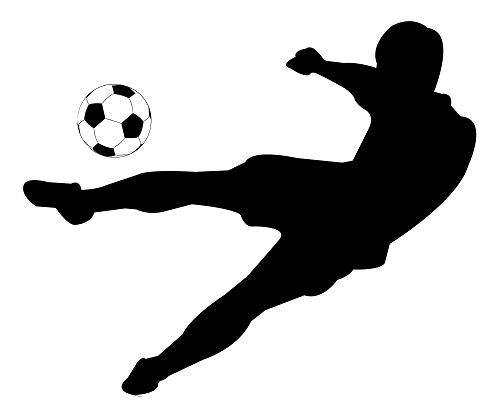Since the 1945 introduction of the Nigerian Football Federation, the West African nation has become a top soccer contender on the international stage.
The Nigeria Premier League is the highest level of domestic Nigerian football. The league was founded on Saturday 12 May 1990 1972 with six teams which has now been improved upon with more teams, we now have a total of 20 teams in the top flight league.
During the Oyuki Obaseki’s
administration in 2009, the NPL was rated third in Africa and 32nd in the World by global football governing body, FIFA.
In July 2012 the IFFHS rated best
football leagues across the world and ranked Nigeria League as the best in Africa and 24th in the world. Does Nigeria deserve the rating?
IFFHS said points for the ranking were
calculated by adding together the total
points (determined by wins, losses and
draws) of the top five teams in each league and multiplying them by their FIFA co-efficient between January 1 and July 10, 2012. Points are also given based on the number of games won in continental competitions by the five best placed clubs in each country.
The NPL said the rating did not come to it as a surprise.
ON Sunday, November 13, 2011, the 2010/2011 Nigeria Premier League (NPL) season came to an end after more than one year, and without any permutation, it became the world’s longest league season. The league began precisely in November 2010 with the aim of coinciding with the European football calendar but could not be completed within the same period as the European Leagues.
The 2012 season is the 41st season since inception and 22nd since the rebranding of the league as ‘the professional league.’ the season originally was to start November 26, 2011., a month less after the conclusion of the previous season. Due to long delays by the disputes in the NPL board, the date was pushed to January of 2012 to give time for proper organization and sorting out of a new sponsorship deal for the league. The league later kicked off in January and was planned to end in July but now ends on September 7, 2012. During the season, the league experienced some breaks and rescheduling of matches due to some (in)evitable reasons. The general strike on subsidy removal, robbery attacks on teams and the menace of Boko Haram; an Islamic sect in the north, caused the postponements rescheduling and moving of matches from a centre to a safer one. The season also holds the highest record of players and officials striking and opting out of games for reasons of unsettled claims of salaries, sign- on fees and promises made them by club managements and financiers; the government. Players demanded the payment of their salaries and allowances while some coaches resorted to arbitrations and dispute resolution committees to get their contract fees paid them. Unfortunately, some players could not fight for their settlement since their relationship with their clubs were only verbal and wasn’t a valid contract which raises eyebrows over the league body’s documentation of players’ contracts and transfers.
On Thursday, 10 January 2013, The Sudanese Premier League was ranked
as the strongest league in Africa and the 35th in the world for the year 2012. This rating displaces the Nigeria Premier League which hitherto ranked as Africa’s number one.
The Nigerian League has plummeted the ranking, dropping to the fifth best in Africa and the 60th best in the
world. Where did we go wrong??
– Lack of adequate funding is obviously a problem area, as the dismal level of the number of paying spectators to NPL organized matches obviously affects its purse (reduced gate takings, and sponsorship).
Organising bodies of Nigerian football tend to be run more as government’s
department rather than playing up the
business angle. Who says, the NPL can not be privatized, whereby the private sector is encouraged to invest in it? I urge the Nigerian Football Federation, NFF (the regulator of the NPL) to be more creative in order to be more independent of both the federal and states’ governments.
– Bad officiating of many NPL organised
matches seems to be the order of the day. No wonder, spectators’ assault of referees seems to be on the upscale.
– Frequent attacks on players, even in the dressing rooms, clearly portend lack of adequate security arrangements for
football matches here. It is no longer
– Low culture of maintenance of public
facilities is well known within this
environment. This has so contributed to the declining state of match venues that a recent call by a prominent sports personality, on the declined state of the National Stadium, Abuja (especially in the area of public conveniences) comes to mind. This edifice was built less than ten years ago, and its effective
maintenance now constitutes a problem.
WHAT IS THE WAY FORWARD?
– Organisers of local league matches should drastically reduce gate-takings for such events. This will obviously encourage all to come see the players, who would likely become celebrities before these football fans later
– There should be intensification of
promotion of matches, locally.
– Each club must have its own stadium
– Infrastructures must be maintained
– Players must get paid as at when due
We can go on and on about what must be done to improve the situation of our league, the most important thing that must be done for all the above points to work out well is the NFF getting their house in order, square pegs must be put in square holes and with the amount of talent in this country, our league would be up there in Africa again.


Recent Comments